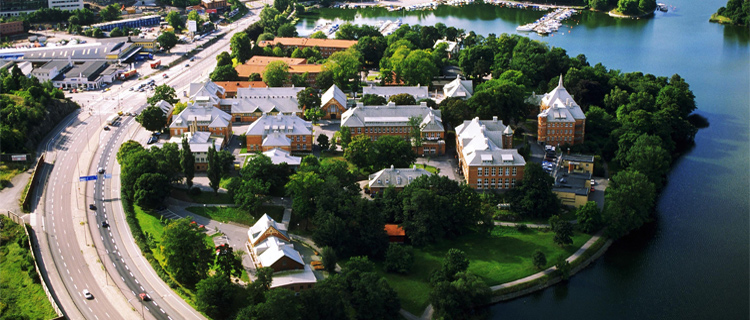
Kräftriket, home base for the Stockholm Resilience Centre.
Funding
Increased support for centre research
Funding boost from the European Research Council and Formas
Centre researcher Maja Schlüter has received a consolidator grant from the European Research Council for the project MuSES - Towards middle-range theories of the co-evolutionary dynamics of multi-level social-ecological systems (five years, 18.5 Mio SEK).
The project will develop a mechanism-based understanding of change in SES by developing dynamic models of SES at an intermediate level of complexity across a set of empirical cases of marine and terrestrial food production systems.
The ambitious project will advance sustainability science by developing approaches to identify critical social-ecological interactions across scales from local to global and integrate human adaptive responses into models of SES.
Schlüter is delighted about the continous support from the European Research Council.
"This funding will help us build a diverse and transdisciplinary team of three postdocs and three PhD students within the field of philosophy, computer science, physics, social science and ecology," she explains.
Funding from Formas
Albert Norström received nearly 3 million SEK from the Swedish Research Council Formas to carry out an ambitious, empirical assessment of global coral reef regimes, relying on an extensive global dataset across gradients of natural and anthropogenic conditions.
Using a wide range of functional structure indicators the project will investigate how fish communities are associated across these reef regimes, and use this as mean to detect indicators that could signal loss of resilience in coral reefs.
"The results from the project will aid practitioners to move toward practical implementation of ecosystem-based management," Norström explains.
Similarly, Sara Borgström and Erik Andersson received nearly 3 million SEK from Formas for investigating the potential of nature protected areas to support biodiversity and ecosystem services benefits at a landscape scale. They will develop an assessment system for ecological and social boundaries and bridging elements in landscape transition zones, evaluating this system in an urban landscape.
"We will also formulate guidelines for how to better connect protected areas to their surroundings by interventions in the transition zones and wider landscape," Sara Borgström explains.
Maria Tengö received 3.6 million SEK from Formas to implement and analyze the Multiple Evidence Base, an innovative approach for connecting local, indigenous and scientific knowledge systems. Together with a team of researchers and experts of from local and indigenous knowledge she will study how such an approach can transform the way knowledge is generated and used.
The project grows out of on-going science-policy practice dialogues at the Stockholm Resilience Centre, in collaboration with SwedBio. The project is unique because it builds on networks of international researchers working together with experts from local and indigenous knowledge systems, fostering intercultural learning.






